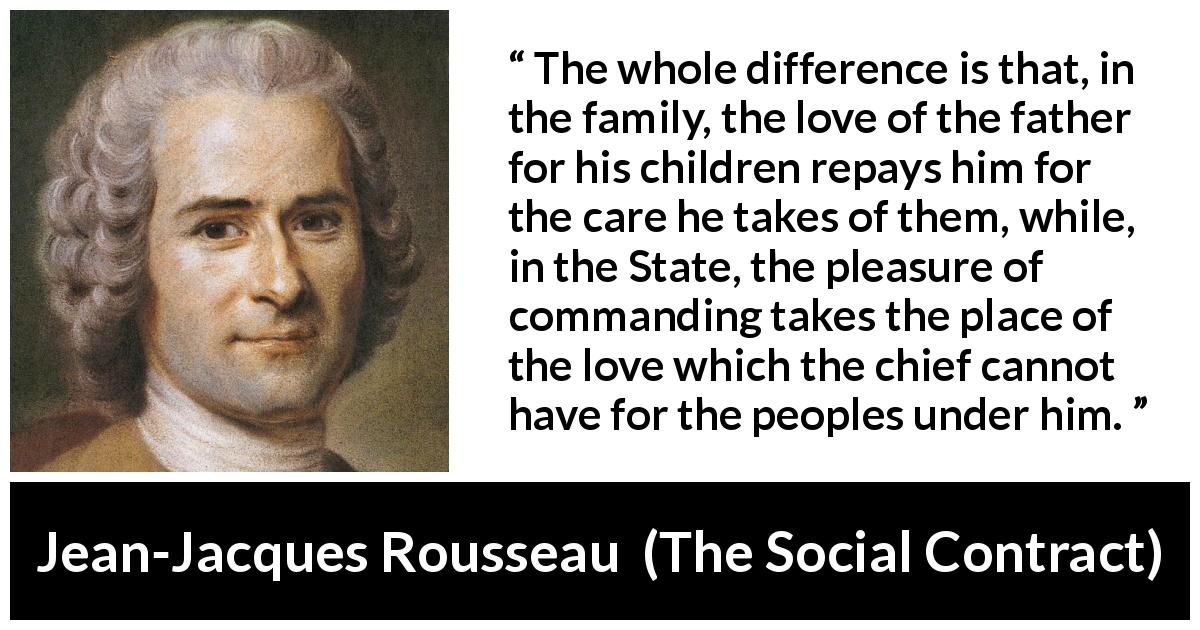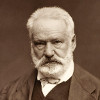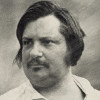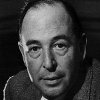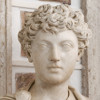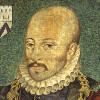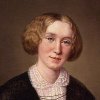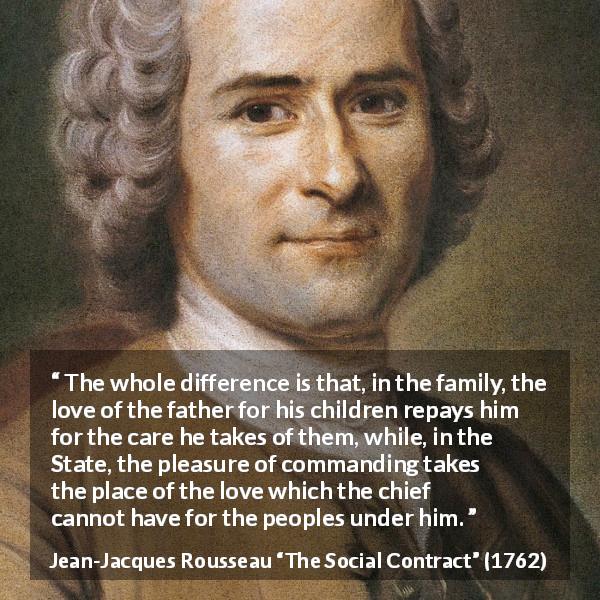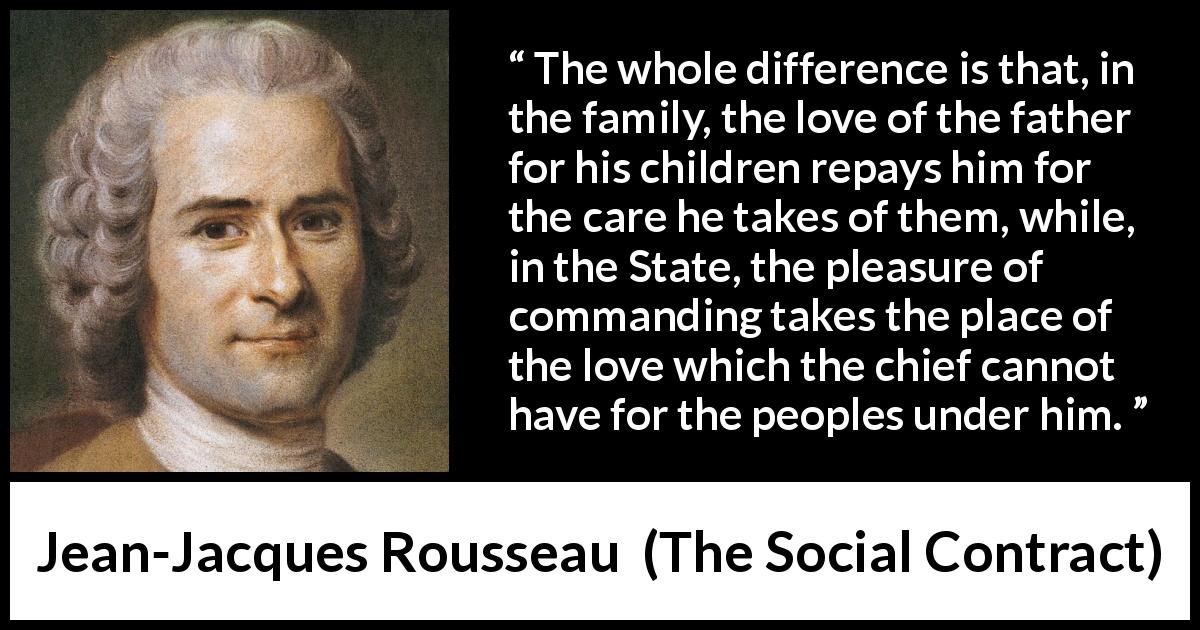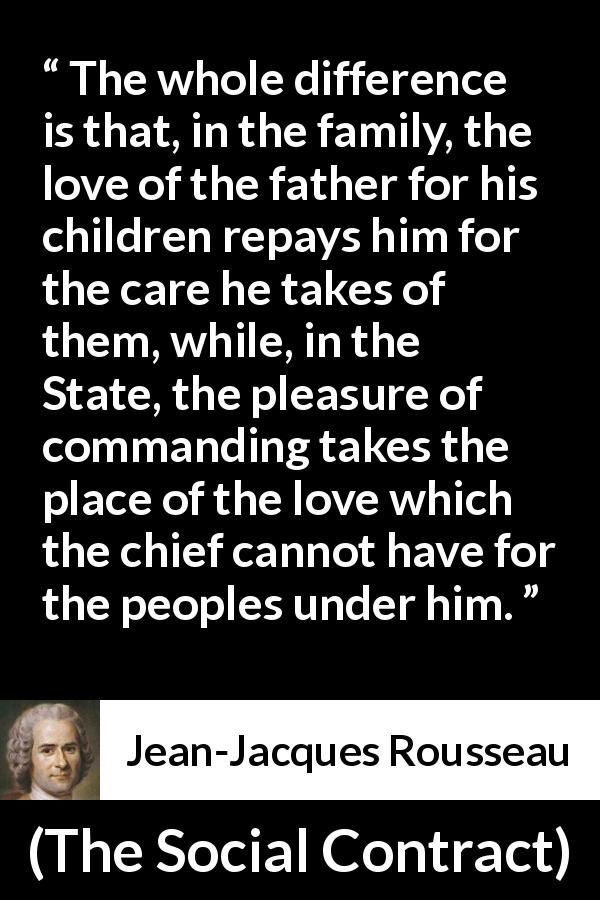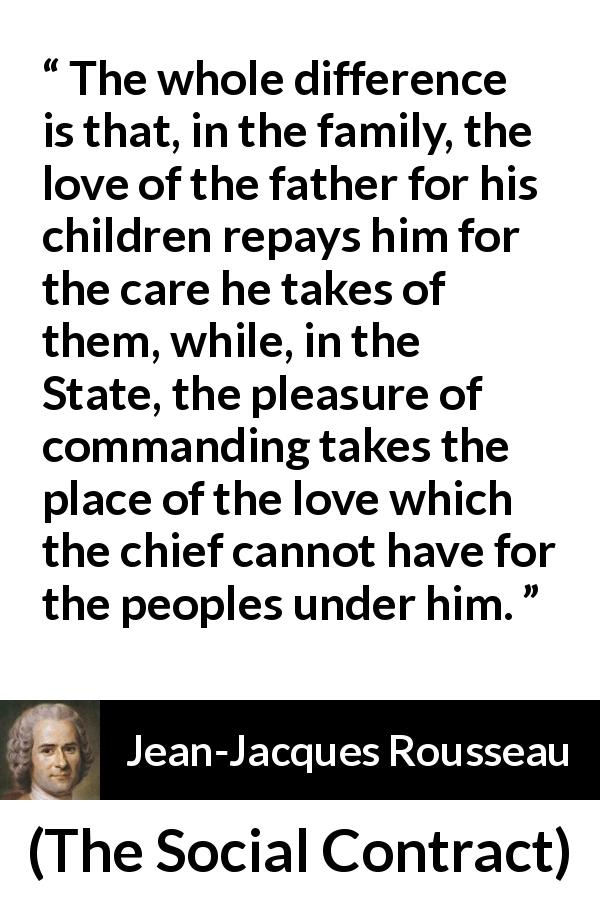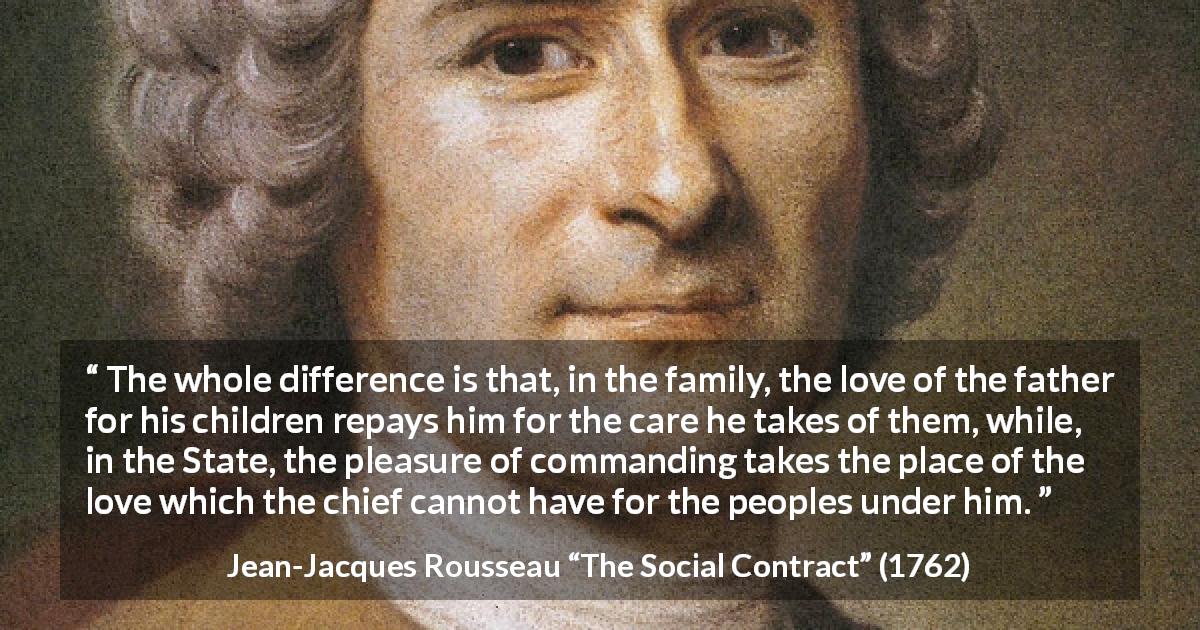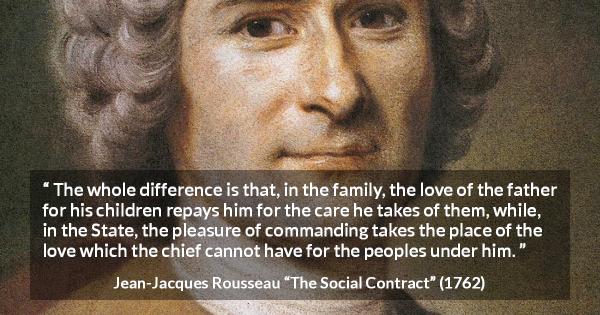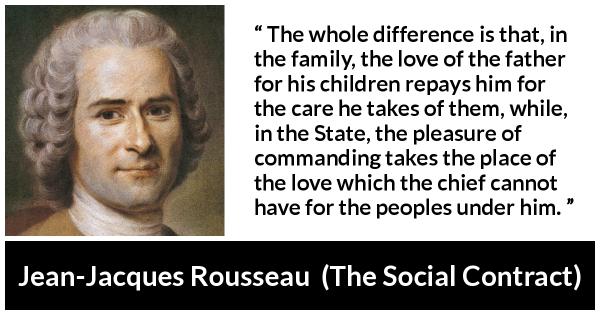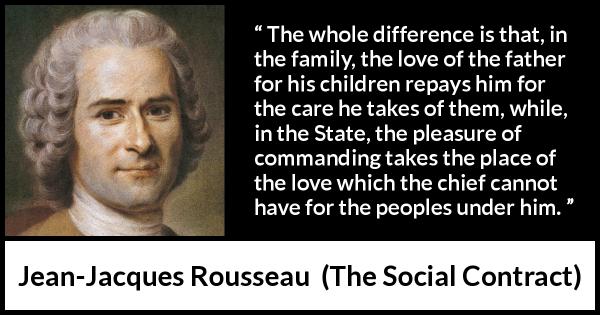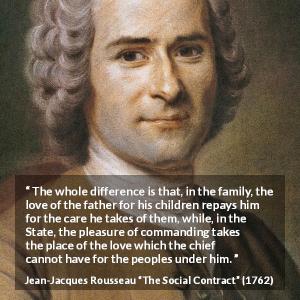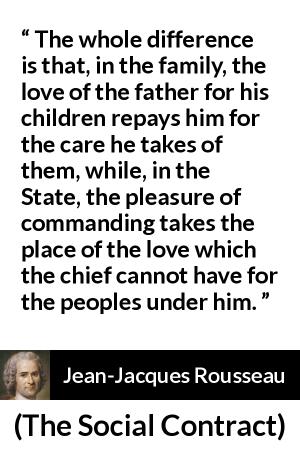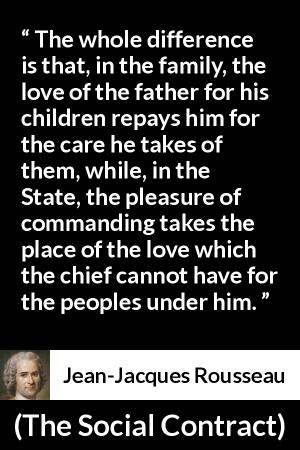“ The whole difference is that, in the family, the love of the father for his children repays him for the care he takes of them, while, in the State, the pleasure of commanding takes the place of the love which the chief cannot have for the peoples under him. ”
Jean-Jacques Rousseau, The Social Contract (1762). copy citation
| Author | Jean-Jacques Rousseau |
|---|---|
| Source | The Social Contract |
| Topic | love care government |
| Date | 1762 |
| Language | English |
| Reference | Of the Social Contract, or Principles of Political Law, Book I |
| Note | Translated by George Douglas Howard Cole |
| Weblink | https://en.wikisource.org/wiki/The_Social_Contract/Book_I |
Context
“The family then may be called the first model of political societies: the ruler corresponds to the father, and the people to the children; and all, being born free and equal, alienate their liberty only for their own advantage. The whole difference is that, in the family, the love of the father for his children repays him for the care he takes of them, while, in the State, the pleasure of commanding takes the place of the love which the chief cannot have for the peoples under him. Grotius denies that all human power is established in favour of the governed, and quotes slavery as an example. His usual method of reasoning is constantly to establish right by fact.1 It would be possible to employ a more logical method, but none could be more favourable to tyrants.”
source
